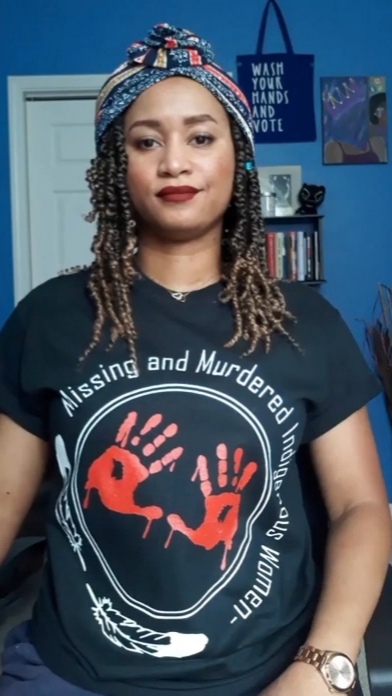MMIW in the time of Covid
Last October 11, Indigenous People’s Day, I posted about MMIW (Missing and Murdered Indigenous Women/Girls) and the need for stronger legislation to protect and search for the missing Indigenous women. Since the day Europeans set foot on this inhabited land centuries ago, they brought violence, enslavement, sickness, and death to Native Peoples. That injustice and inequity continues today.
Last year, at the height of the Covid-19 pandemic, Director of the Urban Indian Health Institute and public health researcher Abigail Echo-Hawk (Pawnee) and her colleagues at the Seattle Indian Health Board reached out to their local and federal partners for more PPE (personal protective equipment). The PPE was needed to assist in helping them continue serving Washington’s Native population during the deadly pandemic, hitting BIPOC communities at exponentially higher numbers. Disgustingly, what they received instead was a package full of body bags. The inequitable and racist U.S. government proved yet again how little it values Native and Indigenous lives.
After grieving over the vile atrocity, Echo-Hawk was inspired to transform one of the body bags into a traditional ribbon dress. A ribbon dress is a late 18th century historical and traditional garment that honors the First Nations’ heritage and highlights important causes like MMIW. In this instance, Echo-Hawk styled the dress to comment on the disproportionate toll the pandemic had taken on Native communities and honor the lives of women who had been put in danger to rising rates of domestic violence and assault during quarantine.
Earlier this month a Missing and Murdered Unit within the Bureau of Indian Affairs was announced by Interior Secretary Deb Haaland. It was created to investigate missing and murdered American Indians and Alaska Natives. This unit will reinforce the 2019 task force, Operation Lady Justice, which worked to resolve unsolved MMIW cases and increase collaboration across federal agencies. Echo-Hawk noted the shame in the lack of action from previous administrations but completed by Interior Secretary Deb Haaland, the first Native American to serve as a Cabinet secretary, in just two weeks.

